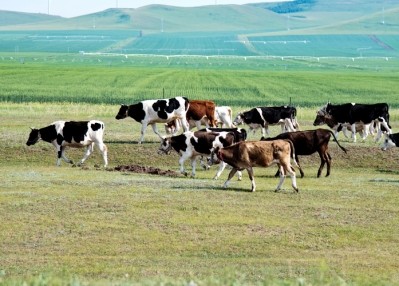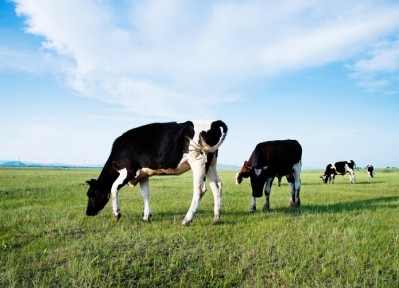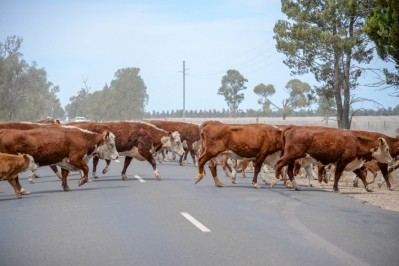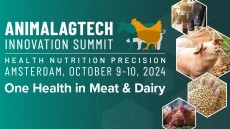Rumin8 secures provisional approval in NZ for methane-reducing feed additive
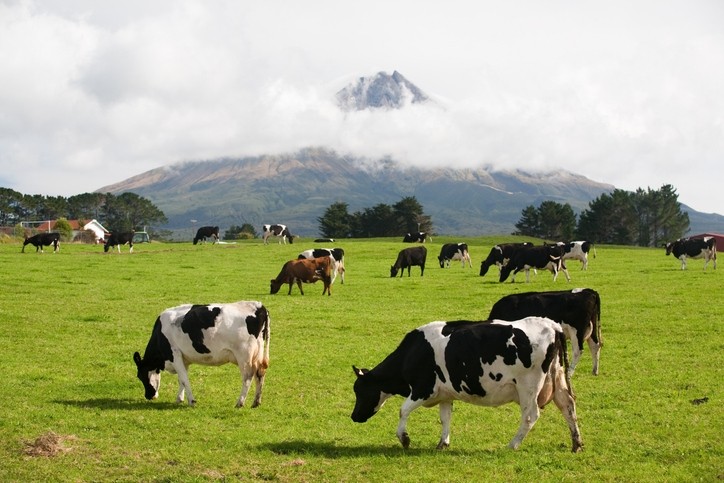
This approval allows for efficacy and safety studies to be conducted in commercial animals to generate the data for final approval in New Zealand.
Rumin8 is developing solid feed and water delivered formulations that leverage an active compound called Tribromomethane (TBM), which was identified in studies with red seaweed.
David Messina, CEO, explained its mode of action:
“A single cow can generate up to three tons of CO2 equivalents of methane per year. Livestock produces methane as a byproduct of methanogenesis, which occurs when the cattle break down feed in the rumen. TBM inhibits this methanogenesis process by blocking the action of key enzymes in the cycle in which carbon dioxide is reduced to methane by the microbes in a cow’s rumen called archaea.”
Global regulatory pathway: international expansion
The New Zealand provisional registration is one of multiple registration processes that are progressing in parallel. Rumin8 is also engaging with the US Food and Drug Administration’s Center for Veterinary Medicine and Brazil’s Ministry of Agriculture, Livestock and Supply (MAPA).
Asked about the challenges and potential regulatory hurdles Rumin8 might face in obtaining final approval for its feed additives in New Zealand and other markets, Messina said:
“Regulators are always concerned with animal and human food safety as the most important considerations, but also need to see evidence of efficacy in the target production system with local feeds and animal management practices in mind. The biggest challenge most companies face is developing an effective product with an acceptable safety profile, and our 18+ studies around the world have already provided that level of confidence. Most global regulators look for similar data to support registration and we are on the road to finalizing those data packages at present.”
Collaborative R&D in New Zealand
Rumin8 has been working with commercial and research partners in New Zealand since late 2022 to evaluate the safety and efficacy of its technology.
“Provisional registration means that the regulator has reviewed Rumin8’s safety and efficacy package for its product generated to date and is happy for the company to proceed to conduct commercial trials. So, we will be conducting a number of studies focused on New Zealand production systems and local feeds to demonstrate the target dose level, efficacy, and long-term safety of the product. There is already a significant safety database around TBM itself, so Rumin8 will be filling in with some non-clinical studies to support its New Zealand and international regulatory filings,” Messina told FeedNavigator.
The trial results to date are providing a good indication that livestock producers will be able to reduce the GHG emissions that their cattle produce, while at the same time producing more meat and milk, reported the CEO.
“That increase in production is important as it will have the ability to fund the cost of the product partly or totally. We have been aiming to provide an environmental benefit and a P&L benefit for farmers and ranchers, and the results achieved to date are promising.”
Products suitable for grazing cattle and boosting productivity
The company presented key methane reduction and productivity improvement results from studies at the Breakthrough Energy 2024 Summit in London last month. The Bill Gates-founded Breakthrough Energy is a cornerstone investor in Rumin8.
The release of two sets of study results at the Breakthrough Energy Summit were each important to Rumin8 individually, but combined their importance was even greater, said Messina.
“Firstly, we announced that a University of New England (Armidale, NSW, Australia) controlled cattle study found the methane yield was slashed by 81% when trial cattle had access to water troughs dosed with Rumin8’s methane reducing livestock supplements.
“Given the predominance of grass-based cattle production systems across the globe, water dosing is crucial, because without it, there is currently no way to administer methane reducing additives to this large market segment.
“Secondly, we provided positive top-line results from three cattle trials – lasting between 75-130 days – where the treated cattle recorded reductions of methane intensity of up to 86% and weight gains ranging 8.4% to 12.5% higher than control groups that were fed the same base ration.
“Products that can both reduce methane emissions and create weight gains are much more likely to be embraced by livestock producers, so this was an extremely promising result,” commented the CEO.

Scaling up production
As regards how Rumin8 plans to expand its production and distribution to meet the demand from farmers in New Zealand and other target markets, he said that one of the startup’s key advantages is that it produces its methane reducing feed and water supplements using a pharmaceutical process that allows for rapid scaling.
